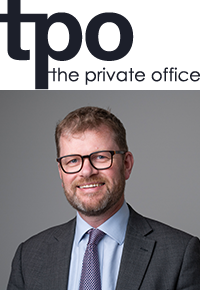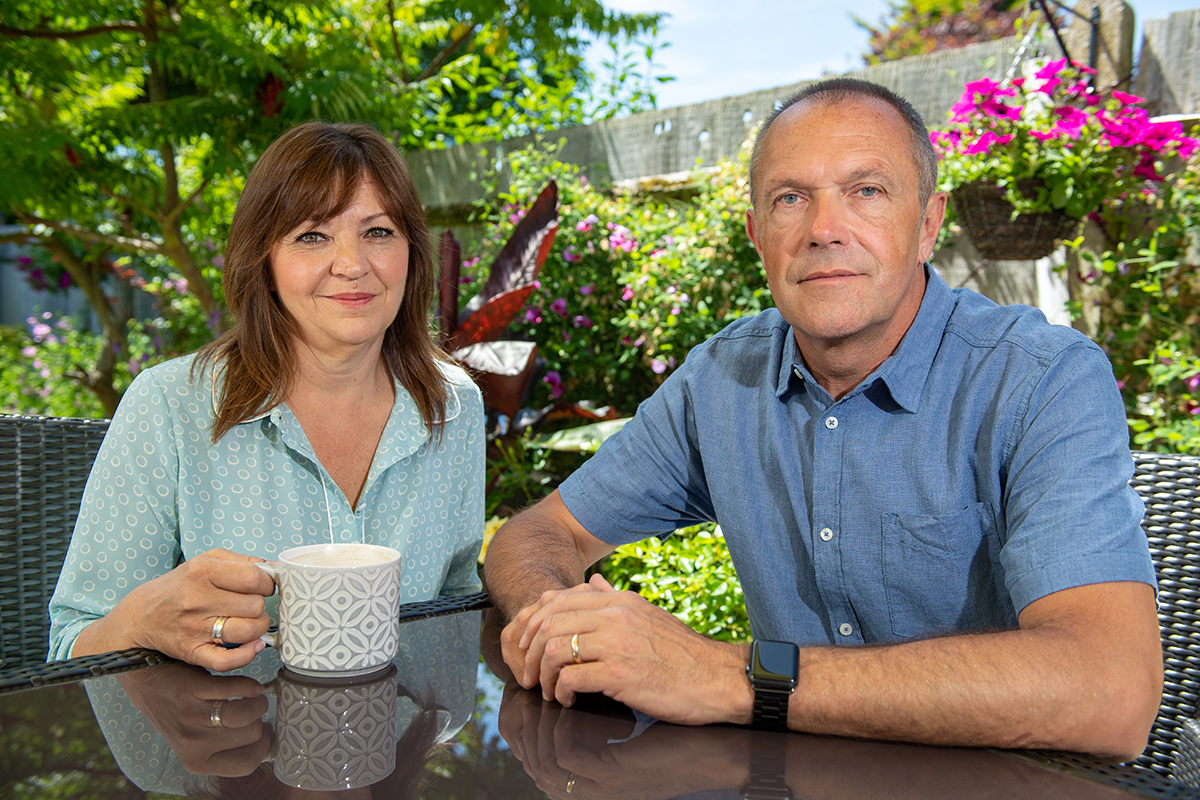Money makeover: can we afford to retire soon and maintain our current lifestyle?
Ian and Rachel North would like to retire at 60 and 55 respectively, but continue to travel and also hel…
3rd September 2019 14:35
by Edmund Greaves from interactive investor
Ian and Rachel North would like to retire at 60 and 55 respectively, but continue to travel and also help their daughter with a deposit on a flat
Ian and Rachel North (pictured above) live in a four-bedroom house in Dunstable, Bedfordshire.
They have two children, Christopher, 24, and Eleanor, 21, who lives at home.
Ian, 57, is a location engineer for the BBC, where he has worked for 36 years.
He has a BBC final salary pension, which he decided to take five years early, at a discount, two years ago. He paid in matched contributions from 1984 to 2011, and the pension is now worth £17,000 a year.
- Invest with ii: What is a SIPP? | ISA vs SIPP | Best SIPP Investments
At the same time, he released a tax-free lump sum from his pension with which the couple were able to pay off their small mortgage and help their son with a deposit on a flat.
Ian says: “This left £55,000, which is in Premium Bonds, partly because I’m not sure when we will need to help our daughter in the same way.”
Ian also has a career average pension that he has been paying into since 2011, when the BBC closed the pension scheme. It is worth £5,117 a year from age 65. Moreover, he pays around 35% of his non-pensionable earnings into a money purchase fund with Aviva, which is currently worth £80,984.
Rachel, 54, is a community matron in the NHS. Her pension will be worth £15,137 a year, and she can take a tax-free lump sum of £45,410.
Ian says: “My wife has worked in the NHS since she was 18 and will be able to retire at age 55 in December this year on a full pension. I expect she will take the tax-free lump sum and a reduced pension, as she will probably carry on working in some form part time.”
Ian has a Stocks and Shares Isa with Hargreaves Lansdown, currently worth £7,175.
Their home is worth around £550,000 and they own it outright.
The couple would like to gradually work less while maintaining their current lifestyle. However, they want to ensure they don’t run out of money and would like to help their daughter with a deposit on a flat.
The big picture

Moneywise has partnered with financial advice firm The Private Office (TPO)to deliver a comprehensive financial report for Ian and Rachel. This is where Alex Hatfield, a chartered financial planner at TPO, comes in.
We asked Mr Hatfield to meet Ian to help the Norths achieve their financial goals in retirement.
Mr Hatfield says: “The questions posed by Mr North are not uncommon. The big questions are around ‘what ifs’ – can I do this or that? In this instance, financial planning provides a filtering process for him.
“We have to start by looking at the big picture and examining how on track or otherwise the Norths are to achieve their aims so that they can understand whether achieving them is possible or whether some sort of compromise is required.
“Ultimately, it comes down to them making a conscious decision to either accept a compromise or not.”
Is the couple’s desired £5,000 a month income target realistic?
Mr Hatfield considered all the couple’s pensions, investments and lump sums and projected how long their money would last if they spent £5,000 a month.
If Ian and Rachel retire when they would like to at age 60 and 55 respectively, the couple will have a shortfall of around £10,000 a year by the time Ian is 68, even though he would be receiving his state pension by this point.
The Norths therefore have three options: they can retire later, take greater risk with their investments in the hope of achieving greater returns or spend less in retirement.
Could the Norths delay retirement?
For as long as Ian and Rachel continue to work they will postpone the point at which they start to rely on their savings and pension income, and thus preserve their various savings pots for longer. However, this option is not as straightforward as it may seem.
Ian has Type 2 diabetes, which makes planning trickier.
He says: “I intend to carry on working until at least age 65 if possible, but my decisions were based on progressing diabetes treatment from Type 1 to (insulin dependent) Type 2.
The problem for Ian is that this introduces uncertainty into their future planning. A long-term illness such as Type 2 diabetes is manageable, but it does reduce a sufferer’s life expectancy and could affect the couple’s planning.
Mr Hatfield explains: “The problem with forecasting is that you have to make assumptions, but doing that is tricky when Mr North has Type 2 diabetes.
“The evidence is that the condition shortens lifespans, but you don’t necessarily plan for a shortened lifespan because you could live a lot longer than expected.”
Complicating the picture further, it may not make financial sense for Rachel to work for longer than she wants to. If she continues working for the NHS once she has started taking her pension, her pension payments will be cut under a system called abatement, which is a common feature of older NHS pensions. The NHS pension is reduced, pound for pound, if pension income plus new earnings exceed earnings prior to retirement.

Could they increase their income from investments?
The vast majority of the Norths’ income will come from defined benefit pensions, which provide a fixed income every month.
Mr Hatfield says the great thing for Mr North is that he has a huge amount of guaranteed income. However, he doesn’t have much money invested. Most of his money is in his pension scheme, and his wife is in a similar position.
However, it is worth making the most of the funds they do have invested to ensure they produce a reliable income. The couple have a Stocks and Shares Isa, Premium Bonds and an Aviva money purchase scheme.
Mr Hatfield recommends that the Norths change the balance of their investments to better reflect the couple’s life stage. Mr North’s Isa is currently invested 47% in UK equities, 46% in global equities and 7% in alternatives. Two notable funds Mr North owns are Moneywise First 50 funds Lindsell Train Global Equity and Stewart Investors Asia Pacific Leaders.
Mr Hatfield suggests rebalancing the portfolio away from equities and towards fixed income or bonds and alternatives because of Ian’s age and current market conditions. Bonds tend to be less volatile than equities, although they have a lower chance of higher returns. This would mean rebalancing to 11% in bonds, 20% in UK equities, 35% in global equities and 34% in alternatives. He suggests the same weighting for Ian’s Aviva pension pot.
Alternatives include investments, such as gold, that shields against volatility and stockmarket downturns. TPOdoesn’t recommend property as an asset class because of the liquidity problems suffered by several property funds in the wake of the Brexit vote in 2016.
As an alternative, it recommends the Jupiter Merlin Income Portfolio fund, a mixed-portfolio fund allocated 47% in equities, 30% in bonds, 10% in cash and 13% in alternatives. Bear in mind, though, that this fund’s ongoing charges figure (OCF) is relatively high at 1.48%.
A cheaper alternative for Ian would be the Vanguard LifeStrategy 60% Equity, a Moneywise First 50 fund, which has an OCF of just 0.22%.
How much income could they have without running out of money?
TPOproduced a new model predicated on the Norths spending £4,000 a month, or £48,000 a year, instead of £5,000. The new model shows that were Rachel to retire at 55 and Ian retire at 60, assuming 5.5% net growth in their assets every year, their money would last until past Rachel’s 100th birthday.
Ian says: “We decided then that we could probably manage on £4,000 a month in retirement instead. To be fair, it is a much more realistic amount. I was being optimistic with £5,000.”
Mr Hatfield suggests it’s prudent to plan this far ahead. He says: “The Office for National Statistics would point out that Rachel, at her age of 54, has got a one in 10 chance of reaching 100 years of age.
“It’s not unreasonable to think that Rachel is going to require income for nearly as long as she has already been alive.
“The dilemma for Ian is: does he want to spend less money in retirement and not work for five extra years or does he want to work for five more years and spend more freely in retirement?
“Financial planners are taught to think of people as having U-shaped retirements. When they initially retire they spend quite a bit, start ticking things off their bucket list. Then they gradually start to spend less, perhaps because they find they have done a lot of the things they want to do. They might spend more time with children or grandchildren and less on travelling on their own – they might pass on an ambitious holiday idea for health reasons.
“In retirement your expenditure tends to taper off, but then – unfortunately – as you get older, costs start to rise again. You start bringing in services to look after you and your home, such as gardening and cleaning. Then your health deteriorates.”
Mr Hatfield also recommends that the Norths urgently set up a lasting power of attorney (LPA) for each of them. Without one in place, were one of them to fall ill or suffer an accident, the other might find that they don’t have the power to take over their affairs, and the Court of Protection would have to assume that role.
The couple have already made the all-important wills to go with them.
How did they find the Money Makeover?
Ian found it revealing and reassuring.
He says: “The figures have given us a bit of reassurance that if Rachel was to give up work in December and I was to go part time at 60, we would still be quite well-off. We wouldn’t have to remortgage down the line.”
He adds: “It will be a great weight off Rachel’s mind. I can show her these figures and she will see that she doesn’t have to go on working. Following her change of job, she seems to be quite enjoying her work. But I think she’s probably thinking that, ultimately, if it all gets too much, she can just give up work and we will still be OK.”
Mr Hatfield says: “The Norths can work longer, spend less or take on more risk. The whole purpose of cash flow forecasting is to try to bring that picture to life and see whether someone can achieve what they want to achieve.”
Key recommendations for Ian and Rachel
- Take a lower income of £4,000 a month, rather than £5,000, so that your savings don’t run out.
- Remember that outgoings in retirement tend to follow a U-shaped trajectory: high, then lower, then higher again.
- Bear in mind that Rachel may need an income for nearly as long as she has already been alive.
- Set up a lasting power of attorney for both of you as soon as possible.

Up your personal finances game with a Money Makeover
Are your finances in need of an overhaul? The Money Makeover is here to help transform the finances of Moneywise readers – one reader at a time.
We arrange a one-to-one meeting with an FCA-regulated independent financial adviser for you in your local area, who will discuss your financial concerns and goals for the future, and draw up a bespoke financial plan for you. Our partner, TPO, is qualified to provide strategic advice and specific product recommendations for all areas of financial planning, and explain the basics of shedding debts, budgeting and saving, pension saving, building an investment portfolio and inheritance tax planning.
You will receive a copy of the adviser’s report. Of course, it’s up to you whether you follow their advice. The Money Makeover is totally free – all we ask is that you are comfortable with your personal financial details and photos being published in Moneywise, so that our readers can also learn from the advice you receive.
To apply for your makeover, fill in the form at Moneywise.co.uk/money-makeover or email editor@moneywise.co.uk.
This article was originally published in our sister magazine Moneywise, which ceased publication in August 2020.
These articles are provided for information purposes only. Occasionally, an opinion about whether to buy or sell a specific investment may be provided by third parties. The content is not intended to be a personal recommendation to buy or sell any financial instrument or product, or to adopt any investment strategy as it is not provided based on an assessment of your investing knowledge and experience, your financial situation or your investment objectives. The value of your investments, and the income derived from them, may go down as well as up. You may not get back all the money that you invest. The investments referred to in this article may not be suitable for all investors, and if in doubt, an investor should seek advice from a qualified investment adviser.
Full performance can be found on the company or index summary page on the interactive investor website. Simply click on the company's or index name highlighted in the article.